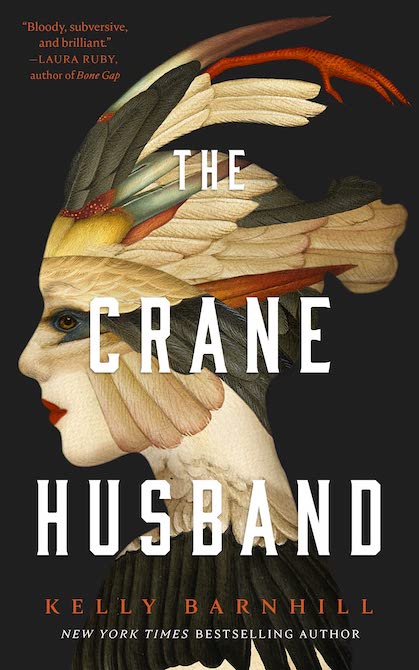The Auditors are at it again. They usually are.
Summary
We begin to learn about the Life of Wen the Eternally Surprised at the moment of his enlightenment about time. Death and the Death of Rats have noted that the Auditors of Reality are up to something, though they’re uncertain exactly what. Death asks to see a beginning and is shown Nanny Ogg being visited at different times in her life by a figure who insists that she must come to midwife a birth. She finally does come and help as an old woman, and then returns home. Death takes out an album of memories and remembers when he was part of the group of five Horsemen instead of having a “solo career.” He wonders if he should call on old friends. He thinks he might need to call on family again, though he promised he wouldn’t. Jeremy Clockson is visited by Lady Myria LeJean, who wants to employ him to make the most accurate clock in existence. Jeremy is the greatest clockmaker on the Disc, left at the clockmaking guild’s doorstep at birth. He takes medication now because he once killed a fellow clockmaker for running his clocks five minutes off. LeJean gives him a downpayment, suggests he read a specific fairy tale, and promises to bring him invar (a special metal) to make the clock.
Buy the Book


The Crane Husband
Susan is a teacher at present, and currently teaching her class about time by transporting her classroom to various locales across the Disc. She gets a message during her lessons from her grandfather to see him. The History Monks are having difficulty with a novice named Ludd (he is too smart and things always seem to disappear when he’s in the room, which they assume is down to theft), so they decide to apprentice him to Lu-Tze. Jeremy reads the fairy tale in the book given to him and finds that it’s about a glass clock and captures Time, only it breaks because it has one piece that isn’t glass. He has a dream about the clock and wakes to find a delivery on his doorstep—an Igor has been hired to be his assistant. His milk is delivered at its usual time by Mr. Soak, and Jeremy finds out that all of Igor’s previous masters were mad. He insists that he’s not and Igor makes himself useful. Lobsang Ludd (who used to be Newgate Ludd before he was brought into the order) reports to Lu-Tze with a letter, and an order for him to present them both to the abbot in the Inner Temple. Lobsang is shocked that Lu-Tze is allowed to do this and also confused about his reputation; he is talked about as an incredible maverick of sorts, but he’s only a sweeper with a garden.
As they walk through the temple dojo, Lu-Tze is challenged by one of the monks who is furious a sweeper would dare come through. Lu-Tze is unbothered. Jeremy tries to write down the plans for the clock based on his dream only to find it’s not quite right. He finds out that Igor’s grandfather worked on the glass clock—it was real, and then, once it was destroyed, it was as though it was never made. The dojo fighter learns who he has challenged and is mortified. Lu-Tze asks the dojo master if he can introduce Lobsang to the Device of Erratic Balls as they move through. Then they move onto the Mandala, which horrifies Lobsang because he can see different sorts of patterns in it. He has a flashback to his recruitment that is maybe just him stepping into the past and then is back a moment later. Lu-Tze goes to see the abbot (who is currently a baby via reincarnation) and talks to him about Lobsang, specifically the fact that he can understand the mandala and do many things he shouldn’t be able to do. This is the reason Lu-Tze has been given charge of him. Susan has a meeting with Madam Frout, her school’s headmistress, because parents are balking at her teaching methods, but she doesn’t much care about that.
As Susan and Madam Frout are talking (and Frout is realizing yet again that she cannot sack Susan or even let her leave or she’d have no students), the Death of Rats shows up. Susan stops time, complains about being summoned and follows him anyway. The abbot and monks know that Lu-Tze is the right person to train Lobsang because he learned his own way, which is why he’s a sweeper instead of a high monk; he could never be trained by their methods, but he has special abilities that he imbued in himself. Lu-Tze agrees that there’s no other option and he’ll have to train the kid to find his own unique way. Susan goes to the gentleman’s club Fidgett’s to talk to her grandfather, who explains that the clock from the fairy tale was real and being built again, that the Auditors are involved, and that if it is completed the world will end next Wednesday. Death cannot see where the clock is being made because it’s being kept from him by someone… like him. This is why he needs Susan’s help. It turns out that Time had a son with a mortal. Dr. Hopkins of the guild comes to see Jeremy at his scheduled interval to check on him and bring more medicine. When he leaves, Jeremy tips his allotted daily spoonful into the sink, as he’s been doing since starting this new project.
Commentary
Okay, so I either haven’t read this one, or don’t remember it well, so this will be fun…
…but also a little sad because we are reaching a point in the Discworld series where we will start hitting last stories within certain groupings. Obviously, Death is always around, and there is one more short story starring him, but this is effectively the last Death book, and the last Susan book.
There’s a lot of setup happening in this one, as well as philosophy around what time is and what it’s for, or at least how it’s perceived. Or as Wen says to Clodpool, “People need to be able to waste time, to make time, to lose time, and buy time.” Time is perhaps one of the wildest constructs the mind insists upon using, so obviously there’s a lot to play with there. And then we have the extra bonus of having Time personified (appreciate that it’s a woman instead of the usual Father Time deal) and having had a child, which is enough to make even Death squirm.
We’ve got two sons of guilds who don’t fit within their assigned briefs despite being extremely talented, which I’m sure isn’t at all important. (And obviously one of them is Time’s kid.) Is the constant use of the Igors getting to be a bit much for me? I think it might be, even if it does make sense here. Just a little too much Igor.
And, of course, we’re back with Susan, who now has a school job where she’s kind of Ms. Frizzle-ing her way into being the greatest teacher via wild trips. I’m not sure if that was the intention, but I like the idea of exchanging Poppins for Frizzle here. (I also can’t really fault Susan for thinking people should pass proper exams before becoming parents; obviously that’s a very bad idea in practice, but it constantly amazes me how little thought people put into why they want to be parents. Because we societally don’t really think people need reasons. It’s just, as Pratchett would put it, how we’ve always done things.)
While I don’t think that Madam Frout’s methods for teaching are terrible on their face, the thing about Susan’s methods that I always appreciate is refusing to treat students or charges like children. That was always a pet peeve for me as a student, personally. Like I get it, I’m a kid, but you don’t have to rub that in, thanks.
Then we get our wonderfully awkward grandfather-granddaughter chat, and when they start talking about time we get this bit: “YOU MUST NOT CONFUSE THE CONTENT WITH THE CONTAINER.” Which brings me to mind of an argument that happened a while back online where people wanted to know if the Kool-Aid Man was his Kool-Aid or only his jug, and now I’m trying to apply that to this view of time and… you know what, I’m gonna stop. My brain’s clearly had it for today.
Asides and little thoughts:
- On mugs that say things like “To The World’s Greatest Grandad”: “Only someone whose life contains very little else, one feels, would treasure a piece of gimcrackery like this.” With the large caveat that you can like whatever you like, fellow humans, I cannot pretend that I don’t regularly have this exact thought. Just incredibly allergic to the Michael’s-fication of home decor.
- The description of Lu-Tze says that he “was sort of generically ethnic, so that he looked as though he could have come from anywhere,” which is… a sort of fascinating (accidental, one hopes) centering of whiteness when you think about it. Because the description using the word “ethnic” means he couldn’t actually come from anywhere—it suggests that he could only come from “anywhere” that “ethnic”-appearing people come from (i.e. not where white people come from). Which isn’t being treated as bad or good in context of the narrative, but it is relevant for being an extremely white person way to frame ethnic appearance as other.
- I can’t help but be amused that The Matrix’s “there is no spoon” convo has become shorthand for philosophy that people don’t really understand.
Pratchettisms:
The apprentice gave him a bleary look. It was too early in the morning for it to be early in the morning.
A sign emerged, rather shakily, on springs, with an effect that was the visual equivalent of the word “boing.”
WITCHES ARE MATRILINEAL, said Death. THEY FIND IT MUCH EASIER TO CHANGE MEN THAN TO CHANGE NAMES.
True, the book had said that Time got trapped in the clock, but Jeremy had no interest whatsoever in things that were Made Up.
And there she met the tiny part of Death which found it hard to deal with people when it thought of them as real.
There were still a few late lunchers frozen in their work, napkins tucked under their chin, in an atmosphere of happy carbohydrates.
The ascent of mankind must have been a boon to them. At last there was a species that could be persuaded to shoot itself in the foot.
Next week we’ll read up to:
He brought the sword down and cut off the yeti’s head.










